When current and aspiring tech entrepreneurs are asked who they look up to the most, they give the usual names: Steve Jobs, Elon Musk, Mark Zuckerberg, and maybe a few will mention Bill Gates. But, unfortunately, there aren’t many who mention Jeff Bezos, founder and CEO of Amazon.
This analytical, methodical, quick-to-laugh brainiac entrepreneur isn’t given the attention he deserves. He doesn’t have the charisma of Steve Jobs, run a car brand like Tesla, get the publicity of Zuckerberg (who had an entire movie devoted to him), or share the wealth of Bill Gates. But, in my view, he deserves to be included with all of these entrepreneurs, perhaps even at the top of the list.
Bezos does more than run a retail store. He’s also into many other ventures, including a private space endeavor called Blue Origin.
And there’s a lot we can learn from this summa cum laude Princeton graduate. Read on to learn about some of his business philosophies.
1. Be Stubborn and Flexible
According to Bezos, good entrepreneurs must be stubborn and flexible. When referring to Amazon, Bezos says, “We are stubborn on vision. We are flexible on details.”
Sticking to the vision is the first part, and being flexible about the tactics is the second part. Bezos adds, “If you’re not stubborn, you’ll give up on experiments too soon. And if you’re not flexible, you’ll pound your head against the wall and you won’t see a different solution to a problem you’re trying to solve.”
There’s a challenge in being stubborn and flexible. Bezos warns: “The thing about inventing is you have to be both stubborn and flexible, more or less simultaneously. The hard part is figuring out when to be which!”
One of the things I’ve heard about entrepreneurs is that they are inherently stubborn individuals. They’re the “natural leaders” who like to take charge and have things done their way. In this sense, it seems as if they are close minded on both tactical details and vision. So while having natural leadership skills is good, one of the characteristics that define good entrepreneurs is being flexible on details. Just ask the guy who built a company from 0 employees to over 117,000. He probably knows a few things about leadership.
2. Stick with Two Pizzas
Bezos seems to believe in small, autonomous groups. (Maybe the roots for this go back to his days as a startup CEO.) He believes in a “two pizza rule” for teams, meaning that the groups should be small enough to feed with only two pizzas. This generally works out to about 5 to 7 people in a team.
At Amazon, the two-pizza teams have created the Gold Box feature that we still see today:
When teams grow larger, they have a tendency to become less efficient. This inefficiency reduces the output of the team and leads to waste. So keep teams small and let them test.
3. Never Stop Experimenting
I love this quote from Bezos:
“If you double the number of experiments you do per year you’re going to double your inventiveness.”
If you ask most CEOs, they’ll tell you that experimentation is imperative for their business. It’s how new innovations are born and how they stay competitive in the market. Automotive companies have concept cars; food companies experiment with new foods and flavors; retail companies experiment with placement of products and store atmosphere; drug companies are built on experimentation; tech companies have “labs” like Google Labs; and many high performing companies, like Google, allow their employees to experiment. Even sports teams experiment with new plays and/or players. Experimentation is everywhere and is always happening.
At Amazon, experimentation and willingness to invent has always been a part of the culture. It’s not secondary or something that “has to be done because everyone else does it.”
Test whether to Advertise on Television
In the early days of Amazon, the executives wanted to know if it would be worth the cost to place advertisements on television. So they looked for two markets with a good blend of the customer demographics they target, and they found Portland and Minneapolis to be the best. They ran a test for 16 months, which is much longer than most companies would experiment. But Bezos said that Amazon was “unbelievably fixated on it” and that it was a “long, expensive test, but we were really determined to understand this for our company once and for all.”
While the ads did give Amazon a slight bump in sales, Bezos determined that it is wasn’t enough to justify the costs. So while this experiment was lengthy, it proved helpful for Amazon’s strategy.
Offer Free Shipping on Orders over $25
The cost of shipping has held many people back from ordering online. (So has not receiving a product the same day they ordered it.)
Amazon currently offers free shipping on orders over $25. They call the program Super Saver Shipping. You can do the math on this and see that a company that operates on low margins like Amazon can’t do it profitably. They would need to increase the $25 threshold.
The math tells you not to do it, but customers tell you to do it. What side do you think Bezos took?
The side of the customer. Surprising for an engineering graduate like Bezos, but not surprising for the customer obsessed CEO that he is.
So Bezos ran the $25 Super Saver Shipping experiment and ultimately found that, while it’s not good for the short term, it pays off in the long term because you’ll have increased customer loyalty with a higher frequency of orders.
Offer a Monthly Shipping Plan
What if a customer doesn’t want to check and adjust every order to be sure it is over $25? Look at Amazon Prime. Try doing the math on this one and seeing how it works out:
- Customer pays Amazon $79 a year
- Customer receives free two-day shipping on any order of any size, dependent on that product being available with Prime
- Customer also gets unlimited movies and TV shows on Prime instant video
In this model, even if the customer makes only a couple of small orders a year, the math is somewhat favorable to it. But Amazon and Bezos are betting (and hoping) that the Prime customer will place dozens of orders. Unfortunately, the higher number of orders means more shipping costs for Amazon.
But here’s the good thing for Amazon – since they have so many orders coming in from around the world, they can select from a wide range of shipping providers and negotiate prices. When Amazon has that leverage, they can keep their shipping costs down.
When asked about his biggest gut call, Bezos said about Prime:
“It’s an all-you-can-eat buffet, $79, that gives you free two-day shipping on everything you buy for a year. When you do the math on that, it always tells you not to do it.”
So far, people have adopted Prime, which now has over 3-5 million subscribers. And in Bezos’s mind, when the interests of the customer and the business are aligned, success happens.
One last note about Prime – they view the costs associated with Prime as part of marketing. In their most recent S-1 (for the 3rd quarter), they note:
“While costs associated with Amazon Prime memberships and other shipping offers are not included in marketing expense, we view these offers as effective worldwide marketing tools, and intend to continue offering them indefinitely.”
All indications are that the Prime experiment has worked favorably for Amazon and their customers.
Measure the Experiments
As I said, experimentation is part of Amazon’s culture. So is measuring the experiments.
When someone comes up with an idea for an experiment, Bezos commonly says, “We can measure that.” This is revealing because it shows that one of his first thoughts is whether they can measure an experiment.
When someone comes to you with an idea, the first question to ask yourself is “can we measure this?”
Even if you can measure it, and the results tell you not to do it, that doesn’t always mean that you shouldn’t. Bezos says, “Sometimes we measure things and see that in the short term they actually hurt sales, and we do it anyway.” While they may hurt the short term, they can benefit in the long term. If it’s good for customers, it’s a good indicator that you should make that experimental practice permanent.
Continue to Experiment
Not all of Amazon’s experiments succeed. Here are a few of Amazon’s failures:
A9 Search:
Auctions:
PayPhrase:
In a June 2011 conference call, when asked about long term and execution, Bezos said:
“When you look at something like, go back in time when we started working on Kindle almost seven years ago…. There you just have to place a bet. If you place enough of those bets, and if you place them early enough, none of them are ever betting the company. By the time you are betting the company, it means you haven’t invented for too long.”
In another interview, when referring to the failure of A9 search and other experiments, Bezos says:
“If you decide that you’re going to do only the things you know are going to work, you’re going to leave a lot of opportunity on the table. Companies are rarely criticized for the things that they failed to try. But they are, many times, criticized for things they tried and failed at.”
Experimentation can be a precursor to innovation, so make sure that you’re always experimenting.
4. Be Willing to Invent
I have bits about the culture of invention at Amazon scattered throughout this post, but there’s one important point I want to highlight.
Ever notice how many products and services Amazon offers? You can trace that back to Bezos’s philosophy of rapid experimentation and invention. In this sense, Bezos is the anti-Steve Jobs. Apple offers only a few products, but Amazon offers dozens. At the bottom of the Amazon homepage, you can see the wide range of different products and services they offer:
Invention is really important to Bezos and his team at Amazon. He mentions the words “pioneers” and “explorers” a lot to describe his team at Amazon. He looks for people that like to invent and are always looking for ways to make products better.
Bezos is even an inventor himself. Whether it’s his 10,000 year clock (which is quite an engineering challenge), his Blue Origin space company, his patented airbag system for phones, the solar cooker he invented as a kid, or his endeavors with Amazon, Bezos loves to invent. He values it (along with resourcefulness) in his employees and encourages it. Bezos has said that one of his favorite things to do is work in teams and brainstorm. It’s clear he’s passionate about invention.
When you’re an entrepreneur, no matter what field, you have to love to invent and build things. Whether you’re Henry Ford building a car, the Wright brothers building an aircraft, or any software engineer inventing new software. It’s in every great entrepreneurs DNA. The love of brainstorming, experimenting, and toying are all fundamental characteristics of inventors and entrepreneurs.
Invention and inventors push the world forward. One of my favorite quotes is all about being an inventor and explorer:
Bezos, his team at Amazon, and entrepreneurs all around the world who are always curious explorers.
5. Think Long Term
If you can know only one thing about Bezos, it should be that he thinks long term.
Once, when asked about Amazon’s revenue growth, Bezos couldn’t even remember the exact growth percentage, something rare for a CEO. When asked why he didn’t know, he said:
“I’m thinking a few years out. I’ve already forgotten those numbers.”
Amazon retail has been around since 1994. Remember those computers and the very early days of the internet? Bezos knew back then that people would be buying products off of it. He has said that those days were some of his most difficult. He was trying to raise $1 million to get Amazon off the ground. But getting that $1 million was incredibly difficult. He said he talked to 60 people, and 22 people gave him $50K.
Why was it so difficult? People didn’t know what the internet was. Bezos said “the first question most of those [investors] had was ‘what’s the internet?’” Think about that – most people didn’t know what the internet was. Bezos did, and he knew people would be buying products off of it. That’s his vision and long-term thinking at work.
Is there anything today that most of us are not aware of but Bezos is already planning on? Stay tuned.
Obviously, thinking long term requires a tremendous amount of patience. This is especially true when you’re the CEO who needs to also focus on day-to-day operations. And it requires you to be misunderstood for long periods of time. It’s part of building something new.
Bezos says that “me-too companies have not done that well over time.” So you need to invent and be willing to be misunderstood. Because all disrupters are inventors. And me-too companies are not inventors.
Indeed, he often recognizes this with Amazon: A9 was a me-too of Google, Auctions was a me-too of eBay, etc. When asked if they’re going to get into brick and mortar, Bezos has said:
“One of the things we don’t do very well at Amazon is a me-too product offering. So when I look at physical retail stores, it’s very well served, the people who operate physical retail stores are very good at it…the question we would always have before we would embark on such a thing is: What’s the idea? What would we do that would be different? How would it be better? We don’t want to just do things because we can do them…we don’t want to be redundant.”
He also says that long-term thinking and experimentation needs to be a fundamental ingredient of the company:
“You need a culture that high-fives small and innovative ideas and senior executives [that] encourage ideas. In order for innovative ideas to bear fruit, companies need to be willing to “wait for 5-7 years, and most companies don’t take that time horizon.”
Thinking long term and not being obsessed with quarter-to-quarter finances is:
- Good for customers, as we see with the example of Amazon’s $25 shipping. It doesn’t make sense if you focus only on near-term returns when you plan to be around for the long term.
- Good for the company, because you can be more open to innovation if you think and focus on the long term.
Avoiding doing something early on because it’s bad for short term is bad strategy. Some things won’t pay off right away. Focus on the long term and you’ll have better results. Short term is a poor predictor for long term.
“If we think long term, we can accomplish things that we couldn’t otherwise accomplish.”
Jeff Bezos
6. Tie Experimentation, Willingness to Invent, and Innovation All Together
So we know that Bezos and his team at Amazon love to experiment. And if you love to experiment, you need to have a willingness to invent, which is one of the cornerstones of Amazon. This experimentation, combined with willingness to invent, forms innovation. And at his talk in November 2012 at the re: Invent conference, Bezos explains how:
Innovation = Experimentation + Willingness to Invent
Here’s a quote from him at re: Invent:
“There are a few things…if you want to be an innovative company that you have to do.
“First of all, I think innovation is a point of view. You have to actually select people that are a part of the company who want to innovate and explore. Being a pioneering company and an explorer company isn’t for everybody.
“Some people wake up in the morning and they get their energy and the thing they think about in the shower or as they start their annual planning process or however you want to think about it with: who are the three companies that we’re going to kill this year? That’s the conqueror mentality. And it’s a competitor focused mentality instead of a customer focused mentality. And that mentality can succeed by the way, so I’m not claiming the pioneering/explorer approach is the only effective one.
“When you attract people who have the DNA of pioneers and the DNA of explorers, you build a company of like minded people who want to invent. And that’s what they think about when they get up in the morning: how are we going to work backwards from customers and build a great service or a great product? That’s a key element to invention. And that part is fun, by the way, so if you’re the right kind of person and you like to invent, you like change, and everything you see as you move about the world you think how it could be improved, that’s just fun and at Amazon over the last 18+ years has attracted a bunch of people like that and we have a ton of fun doing it.
“Now there are a couple of other things that are essential for innovation and invention that are not as fun. One of them is you have to have a willingness to fail. You have to have a willingness to be misunderstood for long periods of time. If you do something in a new way, and I don’t care what it is, people are initially going to misunderstand it relative to the traditional way. And there will be well-meaning critics who generally want the best outcome but they’re worried about this new way. And there will also of course be self-interested critics who have a vested interest in the traditional [way]. They have some profit stream tied to the traditional way…If you never want to be criticized, for goodness sake don’t do anything new.
“So it’s okay though if you have a willingness to be misunderstood for long periods of time, if you have a willingness to fail, then what you can do is you can ramp up your rate of experimentation. So successful invention is inventions that customers care about. It’s actually relatively easy to invent new things that customers don’t care about. But successful invention, if you want to do a lot of that, you basically have to increase your rate of experimentation and that you can think of as a process – how do you go about organizing your systems, your people, all of your assets, your own daily life and how you spend time, how do you increase those things to increase your rate of experimentation? Because not all of your experiments are going to work.”
7. Present and Discuss Memoranda, not Slide Shows
In an interview with Charlie Rose, Bezos says:
“The traditional kind of corporate meeting is somebody gets up in the front of the room and presents…some kind of slide show. In our view…you get very little information that way, you get bullet points. It’s easy for the presenter but difficult for the audience. And so, instead, what we do is all of our meetings are structured around a 6-page narrative memo. And when you have to write your ideas out in complete sentences and complete paragraphs, it forces a deeper clarity of thinking.”
If you ever get into a flow of writing, you’ll notice something amazing happens. Your brain produces thoughts and ideas faster than your fingers can type them. You’re totally in the zone. It’s an exciting, yet frantic experience, because you want to write down all of the thoughts so you don’t forget them.
Creating slide shows doesn’t have that affect. Even if it could, you are forced to limit your thinking to only the main points. Writing 6 pages forces the author to think things through, and reading and discussing them allows the audience to get to all of the author’s thoughts.
8. Obsess About Customers
“Focusing on the customer makes a company more resilient.”
Jeff Bezos
At Amazon, there is a common line of thinking:
“Start with the customer and work backwards.“
Bezos has mentioned many times that you focus on customer needs and then work backwards from there. In his interview with Charlie Rose, he says:
“We’re not competitor obsessed, we’re customer obsessed. We start with the customer and we work backwards.”
When you work backwards, you start with the customer and their needs and problems. This is the opposite of what some companies do, which is: they think up ideas, build a product, and then see if customers like it.
Bezos is a firm believer that what is best for the customer ultimately turns out to be best for the business. At the 2012 re: Invent conference, he said:
“If we can arrange things in such a way that our interests are aligned with our customers, then in the long term that will work out really well for customers and it will work out really well for Amazon.”
Here are a few examples of Amazon focusing on the customer, sometimes putting them ahead of Amazon’s own short-term returns.
Help Customers Avoid Accidental Duplicate Orders
Amazon noticed that some of their customers would accidentally order products they had previously purchased on Amazon. So they decided to help their customers by putting a warning on the product pages where the customer already ordered the product. Here’s an example:
Amazon measured it and noticed that it decreased sales, but they believe that it will lead to greater customer loyalty.
Of course, it’s impossible to tell if it will lead to greater loyalty years later. But Bezos says:
“You have to use your judgment. In cases like that, we say, ‘Let’s be simple minded. We know this is a feature that’s good for customers. Let’s do it.’”
Allow Competitors to Advertise on Your Website
In another classic example of Amazon putting customers before short-term returns, Bezos made the decision to let competitors advertise their prices on Amazon.
Seems crazy, right? Letting competitors advertise their prices on your website. Bezos did it because he thought it would be best for customers. He says:
“The decision was very controversial inside the company. There was a lot of anxiety around it.”
He decided it was best to give customers more choice.
We still see this feature on Amazon today:
Invite Customer Reviews
Another feature that we see on product pages is customer reviews. It’s another instance where you may think Amazon would want to remove poor reviews for a product because they could make someone hold off on a purchase. But Bezos determined that reviews are better for the customer:
“When we pioneered customer reviews, it was incredibly controversial. I got letters from publishers saying, ‘You don’t understand your business. You make money when you sell things. Take down those negative customer reviews.’ We’ve never done anything of real value that wasn’t at least a little bit controversial when we did it. But if you want to be a pioneer, you have to be comfortable being misunderstood.”
With all the reviews they’ve accumulated over the years, Amazon has become a resource for people researching products. It’s my go to place for all product reviews (with the exception of movies and music). Bezos taking the side of the customer proves useful for his business. Ignoring publishers (who tell him he doesn’t know what he’s doing) is one of my favorite stories about him. Customers before publishers is the lesson here.
Use New Technology to make Customers Happy
Even when dealing with the rapid pace of technological change, Bezos looks for how it can benefit customers.
In his August 2004 interview with Fast Company, Bezos said:
“We have this weirdness in our business,” he says. “The raw ingredients that make our business – things like CPU processing power, bandwidth, and disk space – get twice as cheap every 12 to 18 months. Disk space is 30 times cheaper today than it was five years ago. Thirty times cheaper! So the real questions become: ‘What can you do with 30 times as much disk space, 20 times as much computing power, and 30 times as much bandwidth? All right, how are you going to make customers happy with that?’ It turns out that these are not easy questions to answer.”
It appears that one of the answers to those questions was Amazon Web Services, which has been remarkably successful.
9. Base Your Strategy on Things That Won’t Change
Bezos at re: Invent, November 2012:
“I very frequently get the question: ‘what’s going to change in the next 10 years?’ And that is a very interesting question; it’s a very common one. I almost never get the question: ‘what’s not going to change in the next 10 years?’ And I submit to you that that second question is actually the more important of the two – because you can build a business strategy around the things that are stable in time….in our retail business, we know that customers want low prices and I know that’s going to be true 10 years from now. They want fast delivery, they want vast selection. It’s impossible to imagine a future 10 years from now where a customer comes up and says, ‘Jeff I love Amazon, I just wish the prices were a little higher [or] I love Amazon, I just wish you’d deliver a little more slowly.’ Impossible [to imagine that future]. And so the effort we put into those things, spinning those things up, we know the energy we put into it today will still be paying off dividends for our customers 10 years from now. When you have something that you know is true, even over the long-term, you can afford to put a lot of energy into it.
“On AWS [Amazon Web Services], the big ideas are also pretty straightforward. It’s impossible for me to imagine that 10 years from now, somebody’s gonna say, ‘I love AWS, I just wish it were a little less reliable.’ Or ‘I love AWS, I just wish you would raise prices…’ Or ‘I love AWS and I wish you would innovate and improve the APIs at a slightly slower rate.’ None of those things you can imagine.
“And so big ideas in business are often very obvious, but it’s very hard to maintain a firm grasp of the obvious at all times. But if you can do that and continue to spin up those flywheels and put energy into those things as we’re doing with AWS, over time you build a better and better service for your customers on the things that genuinely matter to them.”
What are the things that will remain true for your customers over the next 10 years? Take Bezos’s advice and work on those things every day and it’ll pay off big time. Amazon retail is always working on lowering prices, faster delivery (can you say same day delivery?). And they’re probably adding new products every day.
For Netflix, their focus is on streaming because that’s where the future is. So they work on increased reliability with their streaming, a bigger selection in their streaming, and better content. They know customers want all of that.
For Google, they know their customers will continue to want accurate search results and instant answers.
For Verizon Wireless, they know customers will want more coverage, faster speeds, and more reliability. No one is going to say to a Verizon Wireless employee:
“I wish my phone didn’t get reception here.” Or “I want a slower internet connection with my smartphone.” Or “I wish there were more problems with your network.”
No customer is sincerely going to say that. So every day Verizon puts their energies into improving their services.
What would your customers say to you?
Where are you putting your energy? Is it something that customers will still care about in 10 years? If not, start working on things that will matter 10 years from now. You’ll have Jeff Bezos to thank.
10. Identify and Remove Risk
What do you always hear about entrepreneurs?
They love risk. They thrive on it and it excites them.
According to Bezos, the best entrepreneurs don’t like risk and work to identify it and remove it in the early days of a business. He says:
“Good entrepreneurs don’t like risk; they seek to reduce risk…Starting a company is already risky, and then you systematically eliminate risk step by step in those early days….you kind of need to systematically identify risk and then as the company gets bigger and more robust, you can start taking risks again but in those early days a lot of it is about ‘okay I have a good idea, how do we reduce risk?’”
11. Get Started Now to Avoid Regret Later
What’s the worst thing you can live with?
Regrets, guilt, sorrow?
When Bezos was thinking about building Amazon, he had to decide whether to start the company or keep his good job on Wall Street. He created a framework to use for making the decision that he calls a Regret Minimization Framework. It helped him realize he didn’t want to not do it and regret it later. This fear of regret is one of the key reasons why he decided to go ahead and start Amazon.
12. Bezos Gives Entrepreneurs Advice
At his talk at re: Invent, he gave some direct advice to all entrepreneurs:
1) “Never chase the hot thing….you need to position yourself and wait for the wave. And the way you do that is you pick something you’re passionate about. That’s the number one piece of advice that I’d give to someone that wants to start a company or start a new endeavor inside of a bigger company. Make sure it’s something you’re interested in, something you’re passionate about. Missionaries build better products…I’d take a missionary over a mercenary any day. Mercenaries want to flip the company and get rich, missionaries want to build a great product or service – and one of those paradoxes is usually the missionaries end up making more money anyway…..pick something you’re passionate about.”
2) “Start with the customer and work backwards. Those two things, passion and customer centricity, will take you an awful long way.”
Other Good Jeff Bezos Tidbits:
- During tough times, communicate with employees more.
- In order to think long term, you must have conviction. If you are always hung up on short term, then you get stuck on daily minutia. This is similar to his Regret Minimization Framework.
- Failure is part of the job of an entrepreneur. Don’t overemphasize it.
- Fast Company has a great quote from Bezos: “‘For every leader in the company, not just for me, there are decisions that can be made by analysis.’ He’s setting up for the punch line: ‘These are the best kinds of decisions!’ The booming laugh comes on cue. ‘They’re fact-based decisions. The great thing about fact-based decisions is that they overrule the hierarchy. The most junior person in the company can win an argument with the most senior person with a fact-based decision. Unfortunately, there’s this whole other set of decisions that you can’t ultimately boil down to a math problem.’ For those judgments, Bezos relies on his most senior executives, whom he regularly recruits from larger companies.”
- Another quote – “When things get complicated, we simplify by saying ‘what’s best for the customer?’ And then we take as an article of faith if we do that, it’ll work out in the long term.”
- He has referred to himself as a “change junkie” and is one who always adapts.
- Want to know what it’s like having a meeting with Jeff Bezos? Read this post by Steve Yegge. If you don’t want to read the post, just remember this: He’s very smart and knows more than you do. You can spend weeks preparing for a presentation for him, and he’ll still catch something that you missed. My favorite quote from the post: “He will outsmart you. Knowing everything about your subject is only a first-line defense for you. It’s like armor that he’ll eat through in the first few minutes. He is going to have at least one deep insight about the subject, right there on the spot, and it’s going to make you look like a complete buffoon. Trust me folks, I saw this happen time and again, for years. Jeff Bezos has all these incredibly intelligent, experienced domain experts surrounding him at huge meetings, and on a daily basis he thinks of shit that they never saw coming. It’s a guaranteed facepalm fest.”
- Be simple minded when it comes to your customers.
- Bezos is also a huge science fiction fan. He says that this passion for science fiction goes hand in hand with long-term thinking. Perhaps this passion is also what started Blue Origin.
- Check out Bezos’ 2014 Shareholder Letter. Great tone here showcasing Amazon’s inventive culture.
What excites me most about Jeff is that he’s still relatively young (51), so there probably will be a lot more lessons to learn from him in the future. What will his legacy be? He says he wants it to be “world’s oldest man.”
Perhaps his legacy will be Amazon, but there are many other possibilities. Affordable and safe space travel with Blue Origin? Will people in the year 2080 have Bezos to thank for the ability to travel to space?
The 10,000 year clock? People in the year 5000 will go see the clock (which will be in a mountain in Texas) and know that Jeff Bezos helped build that.
Along with Amazon, space travel, and the countless entrepreneurs that have been able to build the products they dream of because of Bezos and the affordability of AWS.
Or maybe it will be something bigger that no one knows about yet (keep in mind he thinks years ahead and is very secretive).
Whatever people ultimately will remember him for, there’s still a lot we can learn from him right now.
Anything you’d like to add about Jeff, his legacy, philosophies, or inventions? Put it in the comments. I look forward to a good conversation about one of the world’s best and brightest.
About the Author: Zach Bulygo is a content writer, you can follow him on Twitter @zachcb1.

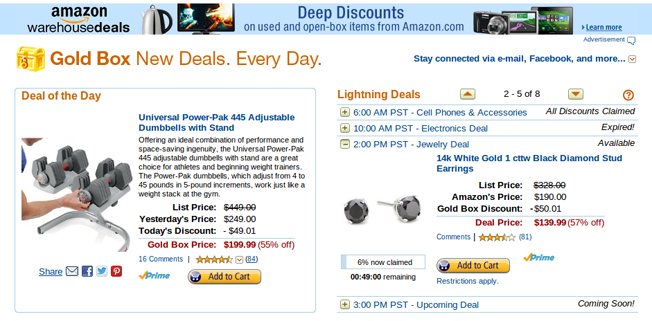
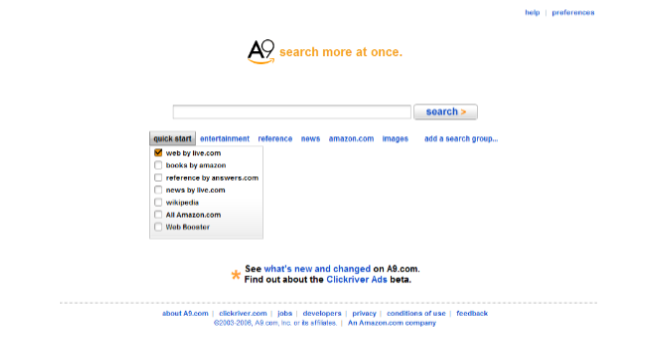
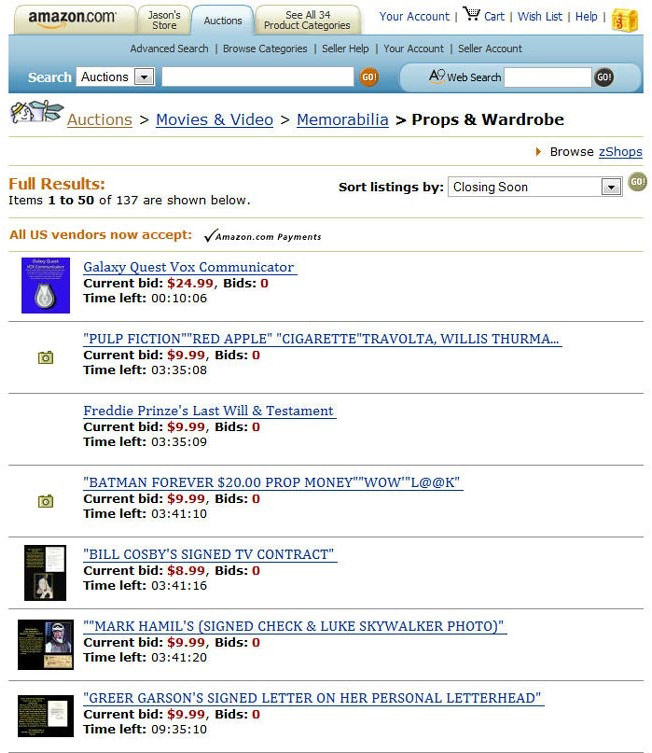

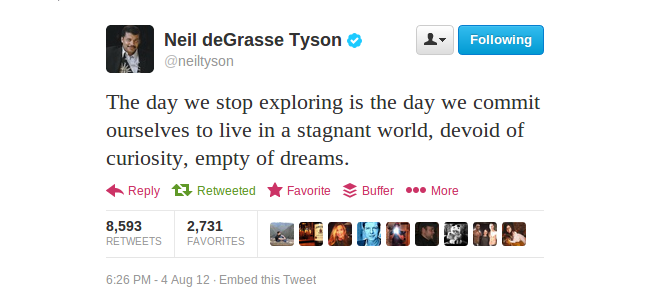
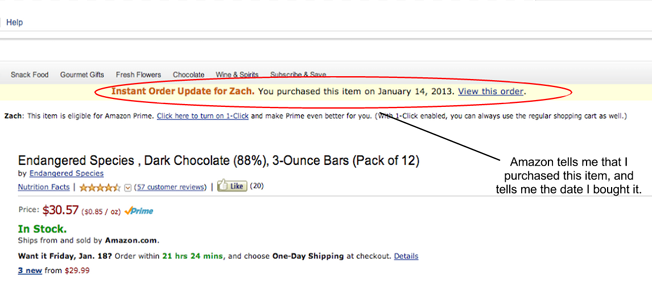
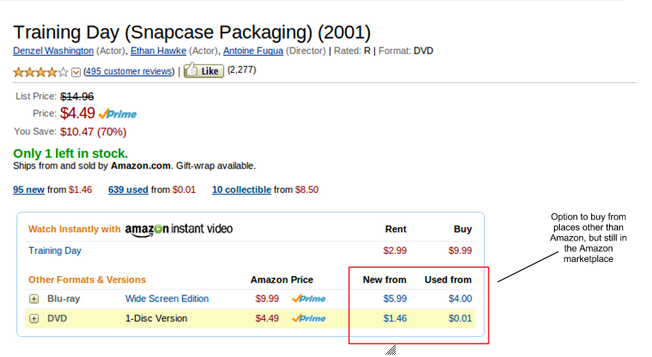
Comments (44)